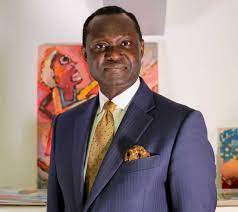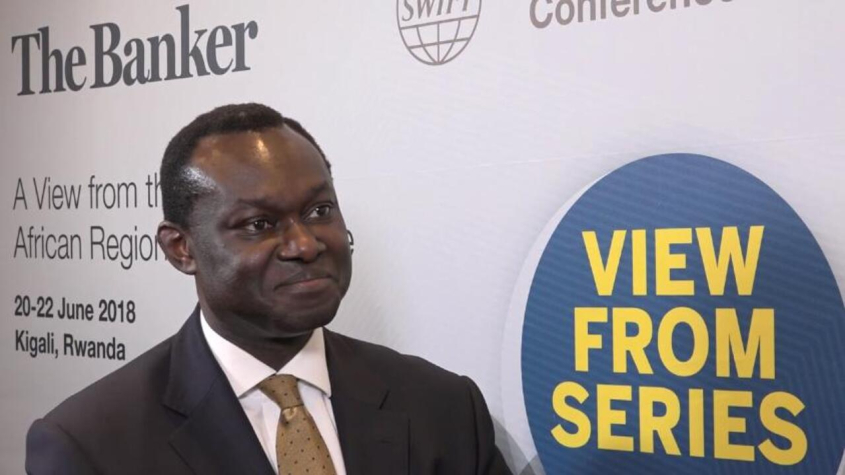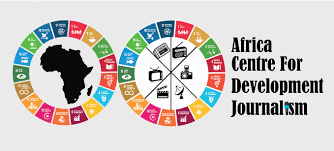INTERVIEW | What AU Must Do for Member States to Implement its Free Movement Protocol- Prof Faal
Prof Gibril Faal, a world-renowned migration expert cum visiting professor in practice at the London School of Economics (LSE), speaks about labor migration and free movement in Africa vis-à-vis the African Union Free Movement Protocol (AU FMP).

Newspage: You blame the ‘lump of labor’ fallacy for discrimination against migrants in Africa. Can you elaborate on this argument?
Prof Faal: Many people think work is finite in nature. Therefore, they assume that if more people migrate into a country, they will take their jobs because they view the availability of jobs as a zero-sum game. As such, if more people come into a country and take jobs, they will be displacing locals. Some people view this as common sense, yet it is unscientific and, therefore, not true.
This is the major reason why many people across the world are always suspicious and resentful of labor migration. However, since we are certain that this is not true, this economic concept should be popularized for the masses to understand and help them deal with one of their fundamental worries. In doing this, there is no need to use economic jargon, as there are many ways to explain this for people to understand.
Conversely, if migrants come into a country and get employed by companies, the companies they work for will grow and even employ more people. The reality is that when some of these migrants come into their host countries, they don’t even get employed by anyone; rather, they create their own jobs. So, in terms of advocacy for the implementation of freedom of movement, especially labor migration, I believe this is one concept that should be popularized.
Newspage: As a response, you called for the need to massively counter the lump of labor fallacy with the popularization of stories about the positive contributions of labor migrants to the growth of the economies of their host countries. What role will the media play in shaping positive narratives about intra-African migration?
Prof Faal: Both conventional and social media will play a massive role in shaping positive narratives about intra-African migration. And my view is that it should not be done using the traditional method of passing information or by giving theoretical arguments. Rather, it should entail using new and different ways of telling the stories and doing so repeatedly, i.e., not only dispelling the false narrative about labor migration but also demonstrating and showing in different ways that it is not true.
The information should be passed in formats that are accessible to the low-income class because it is usually the low-income class that is worried about jobs. This is because such people may not read newspapers. However, social media influencers may be reading newspapers, hence the need for a multi-layered approach, because social media is a major purveyor of falsehood and arguments about the nefarious role of migrants.
Newspage: You also argued that the notion that labor migrants take away jobs in their host countries is false. In reality, you argued that they create jobs not only for themselves but also for the local people. How does this work?
Prof Faal: I was speaking in general and not in specific terms. It is not 100% true that migrants don’t take away jobs, but it is almost 90% so. So, more often than not, migrants are creating jobs and are not displacing others. How does that manifest itself practically? If you go in the street, you will realize that often times the jobs that the migrants are engaged in are the ones that the indigenous people will not do because they consider them too menial or degrading.
In other circumstances, the jobs the labor migrants get involved in are jobs that require a specific set of skills that the local people do not have. These challenges challenge the locals working with foreigners with this set of skills to enhance their own skills and end up improving their skills.
One illustration of this in recent years is the English Premier League, in which there were a lot of fears that allowing so many skilled football players to come into the UK would displace British footballers and affect the quality of British football, while the counterargument was that the general level of skills would be increased. Subsequently, the England national football team has done better since the emergence of the Premier League, which is full of migrant labor.
Another instance is the Nigerian banks and Nigerian bankers when they went to other African countries, and there were outcries that because Nigeria is a big country, the banks would take over the financial sectors of their host countries. In reality, the reverse is true, as they came with a higher degree of competition and ended up enhancing the quality of banking in their host countries.
Consequently, the local banks had to step up their game. As a result, services improved, more people were banked, and many of the banks that remained in business improved. This greatly improved the banking sectors of many of those countries. There might be one or two instances where banks went out of business, but one should say they should go out of business because they were not prepared to up their game.
Now, you hear people saying we don’t like Nigerian migrants, but the Nigerian bankers are good.
Newspage: You, however, cautioned against ‘forcing’ AU Member States to ratify and implement the AU Free Movement Protocol (FMP). Instead, you advocated for soft measures to make them see the value of implementing the protocol. What do you think the AU and stakeholders must do to make the FMP a reality?
Prof Faal: My take is that the way multilateralism works needs to be reexamined. In the multilateral world, we tend to congratulate ourselves on the number of signatures and ratifications for protocols and agreements we have put forward. That is not necessarily bad, but our concern should not be about signatures and ratifications; rather, it should be about implementation.
Therefore, the best set of countries are those that will sign, ratify and implement such agreements, yet there are those that will sign and not implement, while others will not sign but implement. The third group neither signs nor implements such agreements. The best group of countries are the ones that will sign the agreement and implement it. Yet, it is far better to have countries implement these agreements and not sign them than to sign and not implement them.
Newspage: Do you think the FMP as it is currently formulated is fit for purpose or should be reviewed to make it more acceptable to Member States?
Prof Faal: While I am not certain about what the critics are saying, what I am sure of is that no framework can escape people’s criticism, including the Universal Declaration of Human Rights (UDHR). If there is any flaw in the Protocol, emphasis should be placed on correcting it during implementation. Nonetheless, time, energy and resources should be spent on making the FMP a reality by harnessing the benefits associated with free human mobility rather than being stuck with endless debates on the Protocol’s text.
Editor’s note: This Interview has been edited for clarity and flow.














